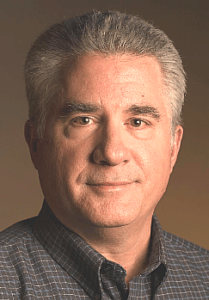Christ is risen!
This the greatest story ever told, the most important event in human history, the central truth of the last 2,000 years. It’s also a breaking story and an ongoing revolution, because Jesus is still alive and still transforming souls and whole societies.
The message of Easter is the gospel — the good news of the Messiah’s life, death, resurrection and saving grace. Our task, privilege, joy and command as believers is to deliver it to every hungry heart, every people group and every culture in each generation.

Erich Bridges
Declaring the good news to the world isn’t just the purpose of Christian mission; it is the purpose of the church. The only higher purposes are worshiping God and loving God. Everything else the church does follows and flows from these essentials. We love others because God first loved us. We minister to the hurting and the poor and defend the oppressed because Christ liberated us from our own bondage.
And when it comes to mission, there’s no time to waste in our generation.
We don’t know when Christ will return in glory. We do know that a new golden age of mission has been under way for decades. Hundreds of once-unreached people groups on every continent now have thriving churches and disciples in their midst. The wildfire growth of the church in China under communism is one of the great stories of all mission history. Movements to Christ continue to be reported across the Muslim and Hindu worlds.
Open doors can close at any moment, however. Campaigns to persecute believers and close churches have multiplied in China, India and the Middle East. Perhaps the most urgent task of traditional missionary-sending churches in the West is to train and equip indigenous leaders to continue the work of evangelism and disciple-making in their own cultures and beyond.
“You wouldn’t know all this is happening if you listen to much of American Christian preaching, media and debate — regardless of theological perspective.”
But you wouldn’t know all this is happening if you listen to much of American Christian preaching, media and debate — regardless of theological perspective.
To hear some conservative U.S. church leaders tell it, our most urgent task as Christians is to defend our borders from the sinister, mostly dark-skinned immigrants and refugees trying to get in. Or to defeat the evil Democrats and socialists who want to destroy our way of life. Or to ban books in school libraries that say something we think is wrong, especially if it involves sex or gender. And heaven forbid we discuss the history of racism in America. And hey, is authoritarianism in America (or Russia) really so bad?
Over on the liberal — sorry, “progressive” — side of the spectrum, three issues seem to take precedence over all else: race, sex and gender. Race, sex and gender. Rinse. Repeat. These are important topics — extremely important in the case of race, considering the distance we still have to go in repenting of the past and creating true racial equality in America. But are they the only issues that concern the church? You might think so if you listen very long to the progressive pulpit and read progressive publications.
LGBTQ concerns in particular, which involve a comparatively tiny percentage of the U.S. population (7.1%, according to Gallup, which is double the estimate of only a decade ago), occupy progressive minds day and night. And there must be something wrong with anyone who does not join them in that preoccupation or agree with their conclusions, which more or less slavishly mirror those of the larger culture.
“Do you see a similarity in the concerns that consume most of the oxygen on both ends of the spectrum? Hot-button social issues.”
Do you see a similarity in the concerns that consume most of the oxygen on both ends of the spectrum? Hot-button social issues.
Again, these issues — or some of them, at least — matter, and should be addressed by the church. None of them should be the overwhelming obsession of the church in a world torn apart by poverty, hunger, war, persecution, tyranny and above all, spiritual lostness. The good news of Christ crucified and resurrected for our salvation should be the primary obsession of the church — and declaring it everywhere should be the church’s overriding mission and passion.
So a plague on both your houses, I say, echoing poor Mercutio in Romeo and Juliet.
Romeo’s unfortunate friend dies by the knife, killed while trying to make peace between the two feuding families in Shakespeare’s tragedy. And the word is indeed “plague,” not “pox” as it’s often misquoted (see Act III, Scene 1), which makes the curse doubly fitting for our pandemic-ridden time.
A plague on you if you elevate lesser concerns above the primary mission of the church. A plague on you if you sprinkle a little holy water over your pet political positions or social agendas and call them holy. And a double plague on you if you engage in the hypocrisy of condemning the other side for constantly jabbing hot buttons when you do the same.
However, I hope this plague will heal you and bring you to your senses. Is racial equality important to the Lord? Absolutely. Social justice? Most definitely. Yes. Empowerment of women? Ditto. Care for the poor, the unborn, the aged, the disabled and the elderly? Verily.
But Jesus refused to allow himself to be coopted by any political or theological faction during his earthly ministry, and he transcends national, parochial and cultural conflicts today. He is Messiah and Lord of all. All knees will bow to him, but first all ears must hear of him.
Prepare the way for his coming by spreading the good news to every nation, tribe and tongue. Everything else will follow.
Erich Bridges, a Baptist journalist for more than 40 years, retired in 2016 as global correspondent for the Southern Baptist Convention’s International Mission Board. He lives in Richmond, Va.
Related articles:
Five qualities of good evangelism and good evangelists | Opinion by Priscilla Pope-Levison
Panelists describe better alternatives to ‘hit-and-run’ evangelism
Our vision of missions should shift from Matthew 28 to John 21 | Opinion by Robert Sellers


